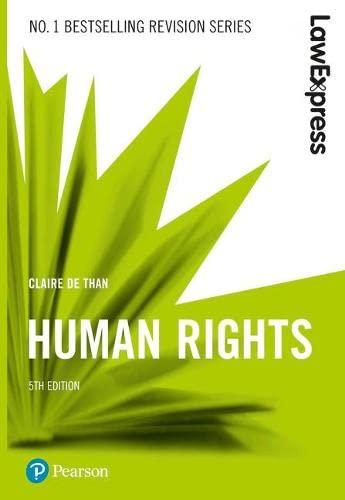Question
Identifying stakeholders. The identification of stakeholders is critical to the success of an assessment, but it is only the first step. Once stakeholders have been
Identifying stakeholders.
The identification of stakeholders is critical to the success of an assessment, but it is only the first step. Once stakeholders have been identified we will be able to do a "stakeholder analysis" and do "stakeholder mapping" through which youwill be able to identify the degrees of power or dependence each of the stakeholders have, the relationships between the stakeholders, theirlevers of influence and other dynamics which will provide you with a workingunderstanding of the informal rules under which the sector or institutions we are assessing really operate.
For the time being, we will just focus on two elements in this process, the identification of the relevant stakeholders and developing a first idea about what kind of relevant data and information which these stakeholders might be able to contributeto your assessment.
Stakeholder identification can be done by askingyourself:Who will have an interest in the project or be affected by it?There is no magic list of stakeholders in given types of assessments, but in justice reform project we most certainly consider the justice institution on which we are focused, other related justiceinstitutions, relevant government and political figures and governance institutions, officials from such institutions, users of the system, thoseaffected by those institutions' actions, members of the public and civil society society organizations (NGOs)which monitor justice institutions or lobby on certain issues and even vendors to the justice institutions.
With this brief background, consider theinitiative described below which the Ministry of Justice of a small middle income country in Central Asia is thinking about undertaking a change in the legal framework governing small claims. There are no other information available as the Ministry has not developed the idea further. However, you have been asked to spend a few minutes thinking about:
Who and what institutions will be the stakeholders when it comes time to undertake the initial assessment which will lead to the project's design; and
What kinds of information you might be able to obtain from each.
Here is what you know:
There is a special court in the country which handles only small cases up to the equivalent of $500 in value. Something is wrong with how the court functions. There are constant complaints in the press that the court is slow. Some cases have been in front of the court for more than fiveyears. The record keeping system is all paper-based. Very few people know the procedures to follow in filing a case, so everyone needs to have a lawyer. Most potential claimants do not even try to use the court as the lawyer will cost more than the case is worth. Landlords, land owners and employers always seem to win the cases filed against them. It is very hard to get information on the status of cases. There are accusations of corruption and favoritism in the court's decisions. Several civil society groups have been pushing for a reform of the court, arguing that the government needs in ensure access to justice.
Here is what you have to do:
Make a list of at least 10 stakeholders which you think should be consulted when the assessment takes place.
After each stakeholder you identify, describe in just a few words summarize the kinds of information which you assume you might be able to obtain from that stakeholder.
Step by Step Solution
There are 3 Steps involved in it
Step: 1

Get Instant Access to Expert-Tailored Solutions
See step-by-step solutions with expert insights and AI powered tools for academic success
Step: 2

Step: 3

Ace Your Homework with AI
Get the answers you need in no time with our AI-driven, step-by-step assistance
Get Started


